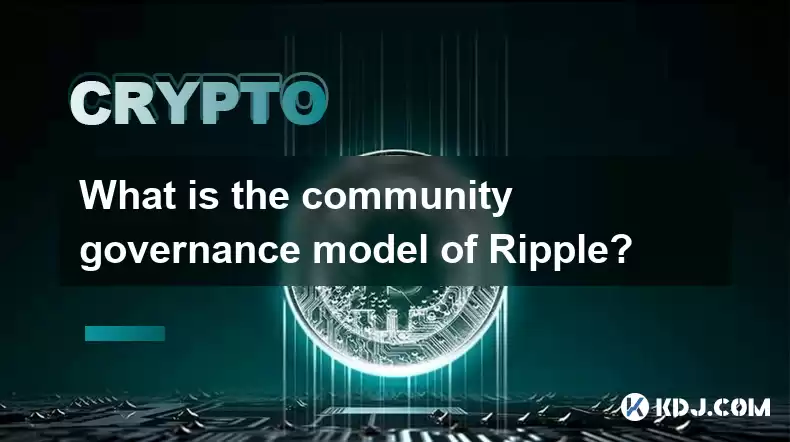-
 Bitcoin
Bitcoin $115100
1.27% -
 Ethereum
Ethereum $3675
2.71% -
 XRP
XRP $2.995
1.45% -
 Tether USDt
Tether USDt $1.000
0.02% -
 BNB
BNB $769.8
2.64% -
 Solana
Solana $168.0
3.25% -
 USDC
USDC $0.9999
-0.01% -
 TRON
TRON $0.3371
1.48% -
 Dogecoin
Dogecoin $0.2051
3.36% -
 Cardano
Cardano $0.7394
2.30% -
 Hyperliquid
Hyperliquid $38.15
0.42% -
 Stellar
Stellar $0.3966
-0.36% -
 Sui
Sui $3.486
2.93% -
 Chainlink
Chainlink $16.72
2.52% -
 Bitcoin Cash
Bitcoin Cash $568.0
4.36% -
 Hedera
Hedera $0.2440
2.59% -
 Ethena USDe
Ethena USDe $1.001
0.04% -
 Avalanche
Avalanche $22.16
2.06% -
 Litecoin
Litecoin $119.1
-0.73% -
 UNUS SED LEO
UNUS SED LEO $8.991
0.04% -
 Toncoin
Toncoin $3.232
-0.39% -
 Shiba Inu
Shiba Inu $0.00001233
2.82% -
 Uniswap
Uniswap $9.717
2.53% -
 Polkadot
Polkadot $3.664
1.85% -
 Dai
Dai $1.000
0.01% -
 Monero
Monero $281.2
-3.89% -
 Bitget Token
Bitget Token $4.350
1.55% -
 Cronos
Cronos $0.1428
5.07% -
 Pepe
Pepe $0.00001050
3.68% -
 Aave
Aave $262.3
3.54%
What is the community governance model of Ripple?
Ripple's governance is a hybrid model, blending centralized Ripple Labs influence with community engagement, lacking a formal voting system, and sparking ongoing debates about transparency and decentralization.
Mar 17, 2025 at 07:30 am

Key Points:
- Ripple's governance model is complex and evolving, lacking a single, easily defined structure.
- It blends elements of centralized and decentralized governance, leading to ongoing debate.
- Key players include Ripple Labs, the XRP community, and various stakeholders.
- Decisions are made through a combination of internal processes at Ripple Labs and community engagement.
- Transparency and community participation are ongoing goals, but their implementation is debated.
What is the community governance model of Ripple?
Ripple's governance structure is a multifaceted issue, often described as a hybrid model. Unlike some cryptocurrencies with purely decentralized governance through on-chain voting, Ripple's approach incorporates elements of both centralized and decentralized decision-making. This hybrid nature has been a source of both praise and criticism within the cryptocurrency community. The lack of a clearly defined, singular model contributes to the ongoing discussion surrounding its effectiveness and fairness.
The Role of Ripple Labs:
Ripple Labs, the company behind XRP and the RippleNet payment network, plays a significant role in shaping XRP's development and direction. While they don't hold absolute power, their influence is undeniable. They are responsible for the development of the XRP Ledger, its ongoing maintenance, and significant technical decisions. Their involvement often shapes the trajectory of the cryptocurrency, leading to discussions about the balance between centralized control and community input.
The XRP Community's Influence:
The XRP community, consisting of holders, developers, and enthusiasts, exerts influence through various channels. This influence, however, isn't formalized through a straightforward voting mechanism like some other cryptocurrencies. Community feedback is gathered through forums, social media, and other channels, and sometimes this feedback is incorporated into Ripple Labs' decisions. However, the extent to which this feedback directly shapes decisions remains a subject of ongoing debate. The community’s engagement is crucial for the project’s long-term success, but the mechanisms for its participation are still developing.
Stakeholders and Their Influence:
Beyond Ripple Labs and the broader XRP community, various other stakeholders influence the direction of XRP. These include exchanges listing XRP, businesses utilizing RippleNet, and other organizations involved in the XRP ecosystem. Their influence is exerted through their actions and relationships with Ripple Labs. Their engagement with the RippleNet ecosystem often indirectly shapes the development of XRP.
Decision-Making Processes:
The decision-making process within Ripple's governance model is a complex blend of internal processes at Ripple Labs and community engagement. While Ripple Labs makes key technical decisions regarding the XRP Ledger, they often attempt to engage the community through various channels. This engagement, however, is not always structured or transparent, leading to criticism from some community members. The exact weight given to community feedback versus internal decisions remains largely opaque.
Transparency and Accountability:
Transparency and accountability are crucial aspects of any effective governance model. In Ripple's case, this is an area that has faced scrutiny. While Ripple Labs publishes updates and engages in community discussions, the degree of transparency regarding internal decision-making processes remains a subject of ongoing debate. The lack of a formalized, transparent system for tracking and addressing community concerns is often cited as a weakness in the current model.
Evolution of the Governance Model:
Ripple's governance model is not static; it's constantly evolving. The company has acknowledged the need for greater community involvement and has implemented various initiatives to increase transparency and engagement. However, the path toward a more decentralized and transparent governance structure remains a work in progress. The ongoing discussions and evolving processes demonstrate the complexity of balancing centralized development with community participation.
The Future of Ripple's Governance:
The future of Ripple's governance will depend on several factors, including Ripple Labs' commitment to increased community involvement, the community's ability to organize and effectively communicate its needs, and the overall evolution of the cryptocurrency landscape. The current trajectory suggests a continuing evolution towards a more inclusive and transparent model, but the specifics of this evolution remain to be seen. Balancing the need for innovation and efficient development with the desires of a decentralized community presents a significant challenge.
Frequently Asked Questions:
Q: Does Ripple have a formal voting system for governance?
A: No, Ripple doesn't currently have a formal on-chain voting system like many other cryptocurrencies. Decision-making is a blend of internal processes at Ripple Labs and community engagement through various channels.
Q: How can the XRP community participate in governance?
A: The XRP community participates through forums, social media engagement, and direct interaction with Ripple Labs. However, the influence of this participation on actual decision-making remains a subject of ongoing discussion. There is no formalized system for direct community voting.
Q: Is Ripple's governance model truly decentralized?
A: No, it's generally considered a hybrid model. While the XRP Ledger itself is decentralized, the decision-making process is influenced significantly by Ripple Labs, creating a centralized element.
Q: How transparent is Ripple's governance process?
A: The transparency of Ripple's governance is a point of ongoing debate. While they publish updates and engage with the community, the internal decision-making processes lack the full transparency of some other cryptocurrencies.
Q: What are the criticisms of Ripple's governance model?
A: Criticisms often center around the perceived lack of transparency, the significant influence of Ripple Labs, and the absence of a formalized, decentralized voting system for community participation in major decisions.
Disclaimer:info@kdj.com
The information provided is not trading advice. kdj.com does not assume any responsibility for any investments made based on the information provided in this article. Cryptocurrencies are highly volatile and it is highly recommended that you invest with caution after thorough research!
If you believe that the content used on this website infringes your copyright, please contact us immediately (info@kdj.com) and we will delete it promptly.
- BlockDAG, Litecoin, and Cardano: Charting the Course in Crypto's Dynamic Waters
- 2025-08-07 09:09:06
- Fireverse Token: Igniting a Musical Revolution in Web3
- 2025-08-07 08:27:45
- Ethereum, L2 Withdrawals, and Decentralization: A New Yorker's Take
- 2025-08-07 08:32:33
- Avalanche vs. Ruvi AI: Daily Sales Tell a Story of Crypto Disruption
- 2025-08-07 06:29:35
- DeSoc: The Crypto to Buy Now for a Decentralized Future (and Maybe 43x Gains!)
- 2025-08-07 06:50:16
- Arctic Pablo Coin: Riding the Meme Coin Wave with a Deflationary Twist
- 2025-08-07 07:18:13
Related knowledge

What is Chainlink (LINK)?
Jul 22,2025 at 02:14am
Understanding Chainlink (LINK): The Decentralized Oracle NetworkChainlink is a decentralized oracle network designed to bridge the gap between blockch...

What is Avalanche (AVAX)?
Jul 22,2025 at 08:35am
What is Avalanche (AVAX)?Avalanche (AVAX) is a decentralized, open-source blockchain platform designed to support high-performance decentralized appli...

What is Polkadot (DOT)?
Jul 19,2025 at 06:35pm
Understanding the Basics of Polkadot (DOT)Polkadot (DOT) is a multi-chain network protocol designed to enable different blockchains to transfer messag...

What is Litecoin (LTC)?
Jul 23,2025 at 11:35am
Overview of Litecoin (LTC)Litecoin (LTC) is a peer-to-peer cryptocurrency that was created in 2011 by Charlie Lee, a former Google engineer. It is oft...

What is Monero (XMR)?
Jul 21,2025 at 10:07am
What is Monero (XMR)?Monero (XMR) is a decentralized cryptocurrency designed to provide enhanced privacy and anonymity for its users. Unlike Bitcoin a...

How to add indicators to Ethereum chart on TradingView?
Jul 19,2025 at 07:15am
What Is an Ethereum Chart on TradingView?The Ethereum chart on TradingView is a visual representation of the price movement of Ethereum (ETH) over a s...

What is Chainlink (LINK)?
Jul 22,2025 at 02:14am
Understanding Chainlink (LINK): The Decentralized Oracle NetworkChainlink is a decentralized oracle network designed to bridge the gap between blockch...

What is Avalanche (AVAX)?
Jul 22,2025 at 08:35am
What is Avalanche (AVAX)?Avalanche (AVAX) is a decentralized, open-source blockchain platform designed to support high-performance decentralized appli...

What is Polkadot (DOT)?
Jul 19,2025 at 06:35pm
Understanding the Basics of Polkadot (DOT)Polkadot (DOT) is a multi-chain network protocol designed to enable different blockchains to transfer messag...

What is Litecoin (LTC)?
Jul 23,2025 at 11:35am
Overview of Litecoin (LTC)Litecoin (LTC) is a peer-to-peer cryptocurrency that was created in 2011 by Charlie Lee, a former Google engineer. It is oft...

What is Monero (XMR)?
Jul 21,2025 at 10:07am
What is Monero (XMR)?Monero (XMR) is a decentralized cryptocurrency designed to provide enhanced privacy and anonymity for its users. Unlike Bitcoin a...

How to add indicators to Ethereum chart on TradingView?
Jul 19,2025 at 07:15am
What Is an Ethereum Chart on TradingView?The Ethereum chart on TradingView is a visual representation of the price movement of Ethereum (ETH) over a s...
See all articles

























































































